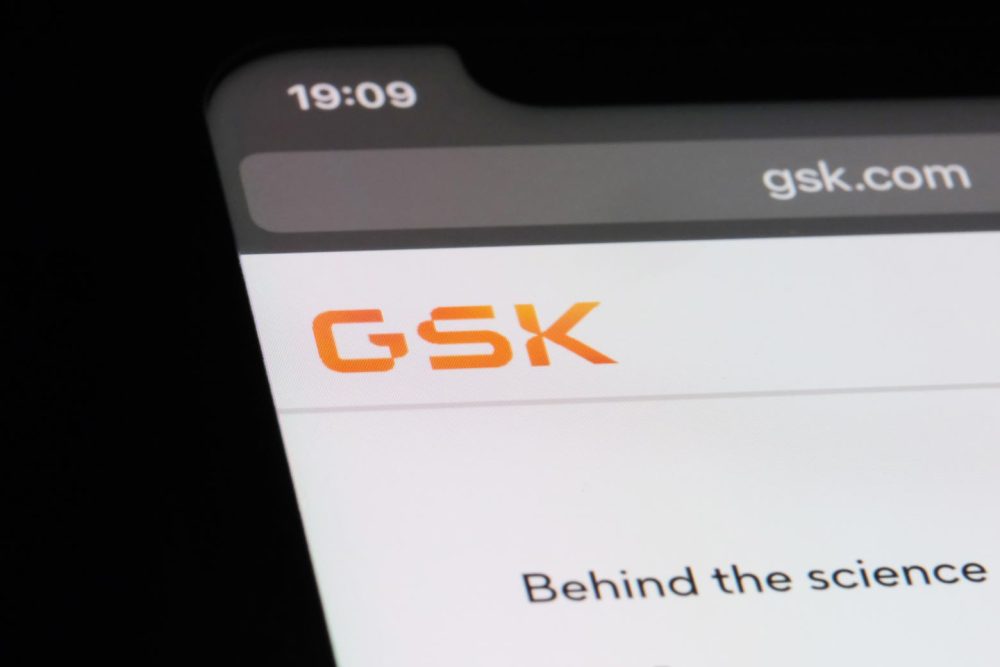Advertisment
Positive RUBY phase III data show potential for Jemperli (dostarlimab) combinations in more patients with primary advanced or recurrent endometrial cancer – GSK

GSK plc announced statistically significant and clinically meaningful overall survival (OS) results from Part 1 and progression-free survival (PFS) results from Part 2 of the RUBY/ENGOTEN6/GOG3031/NSGO phase III trial in adult patients with primary advanced or recurrent endometrial cancer
The goal of the RUBY phase III trial programme is to evaluate which patients with primary advanced or recurrent endometrial cancer could potentially benefit from treatment with Jemperli (dostarlimab) plus chemotherapy, with or without the addition of Zejula (niraparib) maintenance.
Part 1 of the RUBY phase III trial is investigating dostarlimab plus standard-of-care chemotherapy (carboplatin-paclitaxel) followed by dostarlimab compared to chemotherapy plus placebo followed by placebo. Part 2 of the RUBY phase III trial is evaluating dostarlimab plus standard-of-care chemotherapy, followed by dostarlimab plus niraparib as maintenance therapy compared to chemotherapy plus placebo followed by placebo. The safety and tolerability profiles of dostarlimab plus carboplatin-paclitaxel and dostarlimab plus carboplatin-paclitaxel followed by dostarlimab plus niraparib were generally consistent with the known safety profiles of the individual medicines.
Previous data showed a statistically significant and clinically meaningful improvement in PFS with Jemperli plus chemotherapy versus chemotherapy alone in frontline mismatch repair deficient (dMMR)/microsatellite instability high (MSI-H) primary advanced or recurrent endometrial cancer. These data led to regulatory approvals for this patient population in the US, EU and certain other countries. Data presented now show additional potential benefit of dostarlimab plus chemotherapy, with or without the addition of niraparib, in the overall population of patients with primary advanced or recurrent endometrial cancer, including patients with mismatch repair proficient (MMRp)/microsatellite stable (MSS) tumours, for which there are currently no approved immuno-therapy-based regimens.
RUBY Part 1: a statistically significant and clinically meaningful improvement in OS was observed for dostarlimab plus chemotherapy versus placebo plus chemotherapy, meeting a primary endpoint of the study . Dostarlimab plus chemotherapy versus chemotherapy alone showed: In the overall population: • i. a statistically significant reduction in the risk of death by 31% (Hazard Ratio [HR]: 0.69; [95% CI: 0.5390.890]) • ii. a clinically meaningful improvement of 16.4 months in median OS (44.6 months vs 28.2 months) . In a prespecified exploratory analysis of the MMRp/MSS population: • i. a clinically meaningful trend in reduced risk of death by 21% (HR: 0.79; [95% CI: 0.602–1.044]) •ii. a clinically meaningful improvement of seven months in median OS (34.0 months vs 27.0 months).
In RUBY Part 1, grade 3 or higher and serious treatment-emergent adverse events (AEs) were approximately 12% higher in the dostarlimab plus carboplatin-paclitaxel arm (treatment arm) compared with the placebo plus carboplatin-paclitaxel arm (control arm). The nature and types of immune-related AEs in the dostarlimab plus chemotherapy safety profile were consistent with the mechanism of action of dostarlimab and similar to those reported for other PD-(L)1 inhibitors. In the trial, 40.7% of participants in the treatment arm and 16.3% of participants in the control arm had immune-related AEs assessed by the investigator as related to dostarlimab or placebo, respectively. Discontinuation of dostarlimab or placebo due to a treatment-emergent AE occurred in 19.1% of patients in the treatment arm and 8.1% of patients in the control arm. GSK expects FDA regulatory submission acceptance based on RUBY Part 1 data for an expanded indication in the overall population in the first half of this year.
In RUBY Part 2 :addition of niraparib to dostarlimab in maintenance setting significantly improved PFS in first-line primary advanced or recurrent endometrial cancer compared to chemotherapy alone, meeting the primary endpoint of the trial.
Dostarlimab plus chemotherapy followed by dostarlimab plus niraparib compared to placebo plus chemotherapy followed by placebo showed: In the overall population: • i. a statistically significant reduction in the risk of disease progression or death by 40% (HR: 0.60 [95% CI: 0.43–0.82]) • ii. a clinically meaningful improvement of 6.2 months in median PFS (14.5 months vs 8.3 months) In the MMRp/MSS population: • i. a statistically significant reduction in the risk of disease progression or death by 37% (HR: 0.63 [95% CI: 0.44–0.91]) • i. a clinically meaningful improvement of 6.0 months in median PFS (14.3 months vs 8.3 months)
In RUBY Part 2, grade 3 or higher and serious treatment-emergent AEs were approximately 36% and 24% higher, respectively, in the dostarlimab plus chemotherapy followed by dostarlimab plus niraparib arm (treatment arm) compared with the placebo plus chemotherapy followed by placebo arm (control arm). In the trial, 36.6% of participants in the treatment arm and 6.3% of participants in the control arm had immune-related AEs assessed by the investigator as related to dostarlimab or placebo, respectively. No cases of myelodysplastic syndrome/acute myeloid leukaemia were reported; other secondary primary malignancies occurred in 1 patient each in both treatment arms. Discontinuation of dostarlimab or placebo due to a TEAE occurred in 24.1% of patients in the treatment arm and 5.2% of patients in the control arm. Discontinuation of niraparib or placebo due to a treatment emergent AE occurred in 15.7% of patients in the treatment arm and 4.2% of patients in the control arm.





